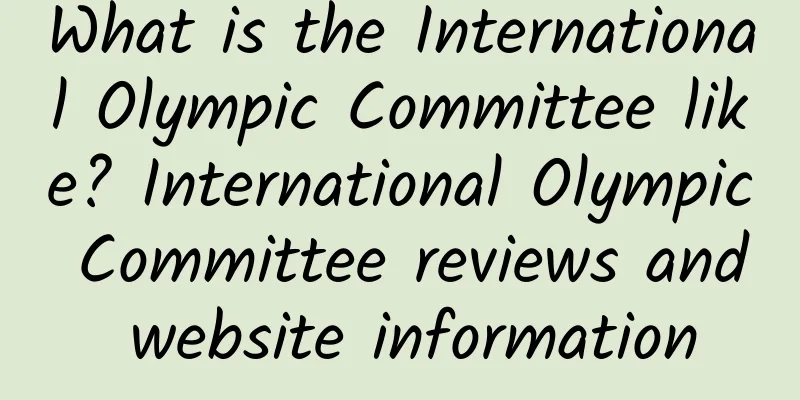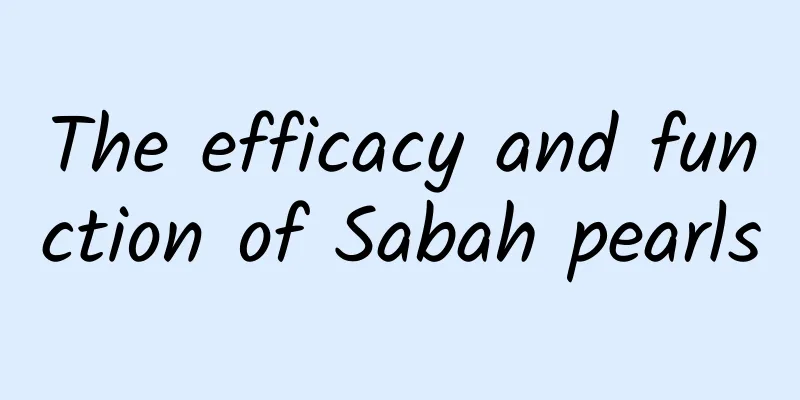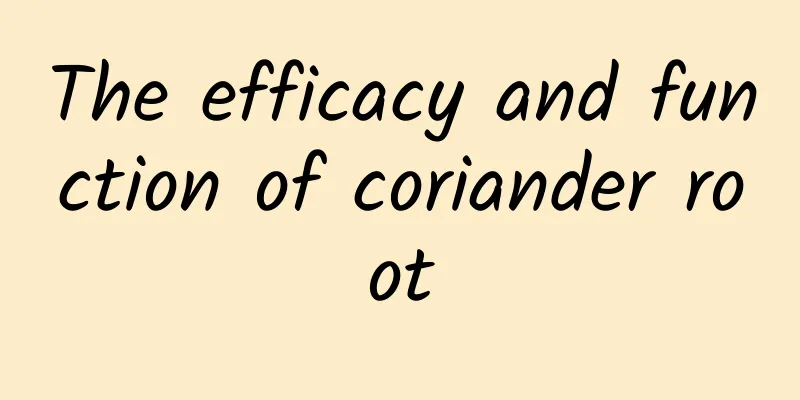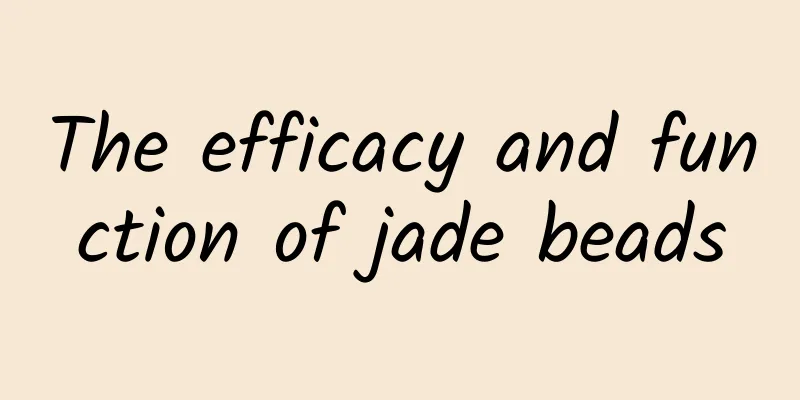What is the International Olympic Committee like? International Olympic Committee reviews and website information

|
What is the website of the International Olympic Committee? The International Olympic Committee (IOC) is a non-profit international sports organization founded by Coubertin in 1894 and headquartered in Lausanne, Switzerland. The competitions organized by the IOC include the Olympic Games, Winter Olympics, Paralympics, etc. Website: www.olympic.org The International Olympic Committee (IOC) is a non-profit international sports organization. Its official website is www.olympic.org. The organization was founded by Pierre de Coubertin in 1894 and is headquartered in Lausanne, Switzerland. The main responsibility of the IOC is to organize and manage the Olympic movement worldwide, including the Summer Olympics, Winter Olympics, Paralympics and other international sports events. The establishment of the International Olympic Committee marks the revival of the modern Olympic movement. In the late 19th century, Coubertin was inspired by the ancient Greek Olympic Games and proposed the idea of reviving the Olympic Games. His idea was supported by many countries around the world. In 1894, the International Olympic Committee was established in Paris, marking the official launch of the modern Olympic movement. Since then, the International Olympic Committee has become the core organization of the global sports industry, dedicated to promoting the Olympic spirit and promoting international peace and friendship. The IOC's responsibility is not only to organize the Olympic Games, but also to promote sports around the world and encourage countries to develop sports. The IOC provides the global public with the latest information about the Olympic Movement, including event arrangements, athlete information, historical background, etc., through its official website www.olympic.org. This website is not only an information release platform, but also a bridge for the IOC to communicate with global sports fans. The organizational structure of the International Olympic Committee includes the President, the Executive Committee and various specialized committees. The President is the highest leader of the International Olympic Committee and is responsible for overall strategic planning and decision-making. The Executive Committee is composed of several members and is responsible for the management of daily affairs and the execution of decisions. In addition, the International Olympic Committee also has several specialized committees, such as the Athletes' Committee, the Medical Committee, the Finance Committee, etc. These committees are responsible for specific areas of affairs to ensure that the work of the International Olympic Committee can proceed smoothly. One of the core tasks of the International Olympic Committee is to organize and manage the Olympic Games. The Olympic Games are the most important events of the International Olympic Committee. They are held every four years and are divided into the Summer Olympics and the Winter Olympics. The Summer Olympics include track and field, swimming, basketball, football and other events, while the Winter Olympics are mainly ice and snow events, such as skiing, skating, ice hockey, etc. The holding of the Olympic Games not only provides a stage for athletes around the world to showcase their talents, but also provides people from all countries with an opportunity to exchange culture and enhance friendship. In addition to the Olympic Games, the International Olympic Committee is also responsible for organizing and managing the Paralympic Games. The Paralympic Games are international sports events held for athletes with disabilities, aiming to promote social inclusion and physical and mental health of people with disabilities through sports. The event settings of the Paralympic Games are similar to those of the Olympic Games, but they have been appropriately adjusted according to the special needs of athletes with disabilities. The holding of the Paralympic Games not only demonstrates the tenacious fighting spirit of athletes with disabilities, but also promotes social attention to the rights and interests of people with disabilities. The IOC is also committed to promoting the Olympic spirit. The core of the Olympic spirit is "faster, higher, stronger", emphasizing the pursuit of excellence and self-transcendence through sports. The IOC conveys this spirit to the global public through hosting the Olympic Games, Paralympic Games and other events, encouraging people to actively participate in sports and pursue a healthy lifestyle. In addition, the IOC also promotes Olympic values such as fair competition, respect for others, solidarity and friendship through various educational and publicity activities. The work of the International Olympic Committee is not limited to the organization of events. It also actively participates in the development of global sports. The International Olympic Committee cooperates with sports organizations and government departments in various countries to promote the construction of sports infrastructure, support the training of sports talents, and promote the development of sports scientific research. The International Olympic Committee also supports the sports cause of developing countries and regions through various projects and plans, helping these regions to improve their sports level and promote the comprehensive development of society. While promoting the development of sports, the International Olympic Committee also faces many challenges. One of them is the doping problem. The use of doping not only violates the spirit of sports, but also poses a serious threat to the health of athletes. The International Olympic Committee uses strict testing and punishment measures to combat the use of doping and maintain the fairness and purity of sports events. In addition, the International Olympic Committee also cooperates with the World Anti-Doping Agency to promote the development of global anti-doping work. Another challenge is the commercialization of events. As the scale and influence of events such as the Olympic Games continue to expand, the commercialization trend of events is becoming increasingly obvious. Although commercialization provides the necessary financial support for the holding of events, it also brings some negative effects, such as excessive commercialization leading to the deviation of the essence of the event. While promoting the commercialization of events, the International Olympic Committee also pays attention to maintaining the purity of the events and ensuring that the Olympic spirit and values are not eroded by commercial interests. The IOC also faces the challenge of balancing the interests of different countries and regions. In the context of globalization, there are differences in the level of development of sports in different countries and regions. How to ensure that each country and region can participate in international sports affairs fairly is an important issue that the IOC needs to face. The IOC ensures that each country and region can participate in international sports events on an equal basis by formulating fair rules and policies, and promotes the balanced development of global sports. The official website of the International Olympic Committee, www.olympic.org, is not only an information release platform, but also an interactive community. Through this website, the public can learn about the latest event information, athlete dynamics, historical background, etc. In addition, the website also provides a wealth of educational resources, such as Olympic history and Olympic values, to help the public better understand the significance and value of the Olympic movement. The website also has interactive functions, such as online forums and social media links, to facilitate the public to interact and communicate with the International Olympic Committee. The work of the International Olympic Committee is inseparable from the support and cooperation of countries and regions around the world. The International Olympic Committee has established extensive cooperative relations with sports organizations, government departments, enterprises, etc. in various countries to jointly promote the development of global sports. The International Olympic Committee also supports the sports cause of developing countries and regions through various projects and plans, helping these regions to improve their sports level and promote the comprehensive development of society. While promoting the development of sports, the International Olympic Committee also pays attention to the combination of sports and culture. The Olympic Games are not only a sports event, but also a platform for cultural exchange. Every Olympic Games will hold a variety of cultural activities, such as the opening ceremony, closing ceremony, cultural exhibitions, etc., to showcase the cultural characteristics of the host country and promote the exchange and integration of cultures of various countries. In this way, the International Olympic Committee promotes the diversity and inclusiveness of global culture and promotes international understanding and friendship. The IOC also pays attention to the combination of sports and the environment. As global environmental problems become increasingly serious, the IOC has realized the impact of sports events on the environment and has begun to take measures to reduce the negative impact of events on the environment. The IOC promotes the sustainable development of sports events by formulating environmental protection policies and promoting green events. For example, the IOC encourages host countries to use renewable energy and reduce waste emissions during events to ensure that the events are carried out smoothly under the premise of environmental protection. The work of the International Olympic Committee is not limited to the organization of events. It also actively participates in the development of global sports. The International Olympic Committee cooperates with sports organizations and government departments in various countries to promote the construction of sports infrastructure, support the training of sports talents, and promote the development of sports scientific research. The International Olympic Committee also supports the sports cause of developing countries and regions through various projects and plans, helping these regions to improve their sports level and promote the comprehensive development of society. While promoting the development of sports, the International Olympic Committee also faces many challenges. One of them is the doping problem. The use of doping not only violates the spirit of sports, but also poses a serious threat to the health of athletes. The International Olympic Committee uses strict testing and punishment measures to combat the use of doping and maintain the fairness and purity of sports events. In addition, the International Olympic Committee also cooperates with the World Anti-Doping Agency to promote the development of global anti-doping work. Another challenge is the commercialization of events. As the scale and influence of events such as the Olympic Games continue to expand, the commercialization trend of events is becoming increasingly obvious. Although commercialization provides the necessary financial support for the holding of events, it also brings some negative effects, such as excessive commercialization leading to the deviation of the essence of the event. While promoting the commercialization of events, the International Olympic Committee also pays attention to maintaining the purity of the events and ensuring that the Olympic spirit and values are not eroded by commercial interests. The IOC also faces the challenge of balancing the interests of different countries and regions. In the context of globalization, there are differences in the level of development of sports in different countries and regions. How to ensure that each country and region can participate in international sports affairs fairly is an important issue that the IOC needs to face. The IOC ensures that each country and region can participate in international sports events on an equal basis by formulating fair rules and policies, and promotes the balanced development of global sports. The official website of the International Olympic Committee, www.olympic.org, is not only an information release platform, but also an interactive community. Through this website, the public can learn about the latest event information, athlete dynamics, historical background, etc. In addition, the website also provides a wealth of educational resources, such as Olympic history and Olympic values, to help the public better understand the significance and value of the Olympic movement. The website also has interactive functions, such as online forums and social media links, to facilitate the public to interact and communicate with the International Olympic Committee. The work of the International Olympic Committee is inseparable from the support and cooperation of countries and regions around the world. The International Olympic Committee has established extensive cooperative relations with sports organizations, government departments, enterprises, etc. in various countries to jointly promote the development of global sports. The International Olympic Committee also supports the sports cause of developing countries and regions through various projects and plans, helping these regions to improve their sports level and promote the comprehensive development of society. While promoting the development of sports, the International Olympic Committee also pays attention to the combination of sports and culture. The Olympic Games are not only a sports event, but also a platform for cultural exchange. Every Olympic Games will hold a variety of cultural activities, such as the opening ceremony, closing ceremony, cultural exhibitions, etc., to showcase the cultural characteristics of the host country and promote the exchange and integration of cultures of various countries. In this way, the International Olympic Committee promotes the diversity and inclusiveness of global culture and promotes international understanding and friendship. The IOC also pays attention to the combination of sports and the environment. As global environmental problems become increasingly serious, the IOC has realized the impact of sports events on the environment and has begun to take measures to reduce the negative impact of events on the environment. The IOC promotes the sustainable development of sports events by formulating environmental protection policies and promoting green events. For example, the IOC encourages host countries to use renewable energy and reduce waste emissions during events to ensure that the events are carried out smoothly under the premise of environmental protection. The work of the International Olympic Committee is not limited to the organization of events. It also actively participates in the development of global sports. The International Olympic Committee cooperates with sports organizations and government departments in various countries to promote the construction of sports infrastructure, support the training of sports talents, and promote the development of sports scientific research. The International Olympic Committee also supports the sports cause of developing countries and regions through various projects and plans, helping these regions to improve their sports level and promote the comprehensive development of society. While promoting the development of sports, the International Olympic Committee also faces many challenges. One of them is the doping problem. The use of doping not only violates the spirit of sports, but also poses a serious threat to the health of athletes. The International Olympic Committee uses strict testing and punishment measures to combat the use of doping and maintain the fairness and purity of sports events. In addition, the International Olympic Committee also cooperates with the World Anti-Doping Agency to promote the development of global anti-doping work. Another challenge is the commercialization of events. As the scale and influence of events such as the Olympic Games continue to expand, the commercialization trend of events is becoming increasingly obvious. Although commercialization provides the necessary financial support for the holding of events, it also brings some negative effects, such as excessive commercialization leading to the deviation of the essence of the event. While promoting the commercialization of events, the International Olympic Committee also pays attention to maintaining the purity of the events and ensuring that the Olympic spirit and values are not eroded by commercial interests. The IOC also faces the challenge of balancing the interests of different countries and regions. In the context of globalization, there are differences in the level of development of sports in different countries and regions. How to ensure that each country and region can participate in international sports affairs fairly is an important issue that the IOC needs to face. The IOC ensures that each country and region can participate in international sports events on an equal basis by formulating fair rules and policies, and promotes the balanced development of global sports. The official website of the International Olympic Committee, www.olympic.org, is not only an information release platform, but also an interactive community. Through this website, the public can learn about the latest event information, athlete dynamics, historical background, etc. In addition, the website also provides a wealth of educational resources, such as Olympic history and Olympic values, to help the public better understand the significance and value of the Olympic movement. The website also has interactive functions, such as online forums and social media links, to facilitate the public to interact and communicate with the International Olympic Committee. The work of the International Olympic Committee is inseparable from the support and cooperation of countries and regions around the world. The International Olympic Committee has established extensive cooperative relations with sports organizations, government departments, enterprises, etc. in various countries to jointly promote the development of global sports. The International Olympic Committee also supports the sports cause of developing countries and regions through various projects and plans, helping these regions to improve their sports level and promote the comprehensive development of society. While promoting the development of sports, the International Olympic Committee also pays attention to the combination of sports and culture. The Olympic Games are not only a sports event, but also a platform for cultural exchange. Every Olympic Games will hold a variety of cultural activities, such as the opening ceremony, closing ceremony, cultural exhibitions, etc., to showcase the cultural characteristics of the host country and promote the exchange and integration of cultures of various countries. In this way, the International Olympic Committee promotes the diversity and inclusiveness of global culture and promotes international understanding and friendship. The IOC also pays attention to the combination of sports and the environment. As global environmental problems become increasingly serious, the IOC has realized the impact of sports events on the environment and has begun to take measures to reduce the negative impact of events on the environment. The IOC promotes the sustainable development of sports events by formulating environmental protection policies and promoting green events. For example, the IOC encourages host countries to use renewable energy and reduce waste emissions during events to ensure that the events are carried out smoothly under the premise of environmental protection. The work of the International Olympic Committee is not limited to the organization of events. It also actively participates in the development of global sports. The International Olympic Committee cooperates with sports organizations and government departments in various countries to promote the construction of sports infrastructure, support the training of sports talents, and promote the development of sports scientific research. The International Olympic Committee also supports the sports cause of developing countries and regions through various projects and plans, helping these regions to improve their sports level and promote the comprehensive development of society. While promoting the development of sports, the International Olympic Committee also faces many challenges. One of them is the doping problem. The use of doping not only violates the spirit of sports, but also poses a serious threat to the health of athletes. The International Olympic Committee uses strict testing and punishment measures to combat the use of doping and maintain the fairness and purity of sports events. In addition, the International Olympic Committee also cooperates with the World Anti-Doping Agency to promote the development of global anti-doping work. Another challenge is the commercialization of events. As the scale and influence of events such as the Olympic Games continue to expand, the commercialization trend of events is becoming increasingly obvious. Although commercialization provides the necessary financial support for the holding of events, it also brings some negative effects, such as excessive commercialization leading to the deviation of the essence of the event. While promoting the commercialization of events, the International Olympic Committee also pays attention to maintaining the purity of the events and ensuring that the Olympic spirit and values are not eroded by commercial interests. The IOC also faces the challenge of balancing the interests of different countries and regions. In the context of globalization, there are differences in the level of development of sports in different countries and regions. How to ensure that each country and region can participate in international sports affairs fairly is an important issue that the IOC needs to face. The IOC ensures that each country and region can participate in international sports events on an equal basis by formulating fair rules and policies, and promotes the balanced development of global sports. The official website of the International Olympic Committee, www.olympic.org, is not only an information release platform, but also an interactive community. Through this website, the public can learn about the latest event information, athlete dynamics, historical background, etc. In addition, the website also provides a wealth of educational resources, such as Olympic history and Olympic values, to help the public better understand the significance and value of the Olympic movement. The website also has interactive functions, such as online forums and social media links, to facilitate the public to interact and communicate with the International Olympic Committee. The work of the International Olympic Committee is inseparable from the support and cooperation of countries and regions around the world. The International Olympic Committee has established extensive cooperative relations with sports organizations, government departments, enterprises, etc. in various countries to jointly promote the development of global sports. The International Olympic Committee also supports the sports cause of developing countries and regions through various projects and plans, helping these regions to improve their sports level and promote the comprehensive development of society. While promoting the development of sports, the International Olympic Committee also pays attention to the combination of sports and culture. The Olympic Games are not only a sports event, but also a platform for cultural exchange. Every Olympic Games will hold a variety of cultural activities, such as the opening ceremony, closing ceremony, cultural exhibitions, etc., to showcase the cultural characteristics of the host country and promote the exchange and integration of cultures of various countries. In this way, the International Olympic Committee promotes the diversity and inclusiveness of global culture and promotes international understanding and friendship. |
<<: What are the Banks of Israel like? Reviews and website information of Banks of Israel
>>: What is Prudential Financial like? Prudential Financial reviews and website information
Recommend
Coconut Porridge
How much do you know about coconut porridge? Let ...
The efficacy and function of Spirulina The medicinal value of Spirulina
It is the Mid-Autumn Festival again, and the heal...
The preparation and efficacy of bayberry wine The benefits of drinking bayberry wine
Bayberry wine is a favorite fruit wine for many p...
What is Emerson Electric Company like? Emerson Electric Company reviews and website information
What is the website of Emerson Electric Company? E...
How to make delicious Oyster Mushrooms? Homemade Oyster Mushrooms
Oyster mushroom is a small mushroom food. It has ...
How is Mitsubishi Warehouse? Mitsubishi Warehouse Reviews and Website Information
What is Mitsubishi Logistics? Mitsubishi Logistics...
How to soak longan peel in water? The efficacy and function of soaking longan peel in water
Usually, many people do not throw away the peeled...
Steps to cook Dutch peas and bacon
Snow peas are one of the most common dishes in li...
What is the Finnish Immigration Service like? Finnish Immigration Service reviews and website information
What is the Finnish Immigration Service website? T...
Diagram of hydroponic operation of dahlia bulbs
The method of using water to prepare plants witho...
How to make healthy multi-grain rice porridge
As for healthy multi-grain rice sweet porridge, j...
How to cultivate golden unicorn? What should be paid attention to when planting golden unicorn?
The golden unicorn looks like a cockscomb, but th...
The efficacy and function of mulberry paste and the benefits of eating mulberry paste
Mulberry paste is a delicious food made from mulb...
How is Rain? Rain review and website information
What is Rain? Rain (real name: Jung Ji Hoon, 정지훈, ...
Can I drink milk if I have diarrhea? Who is not suitable to drink milk?
Milk is the favorite food of many people. Some pe...









